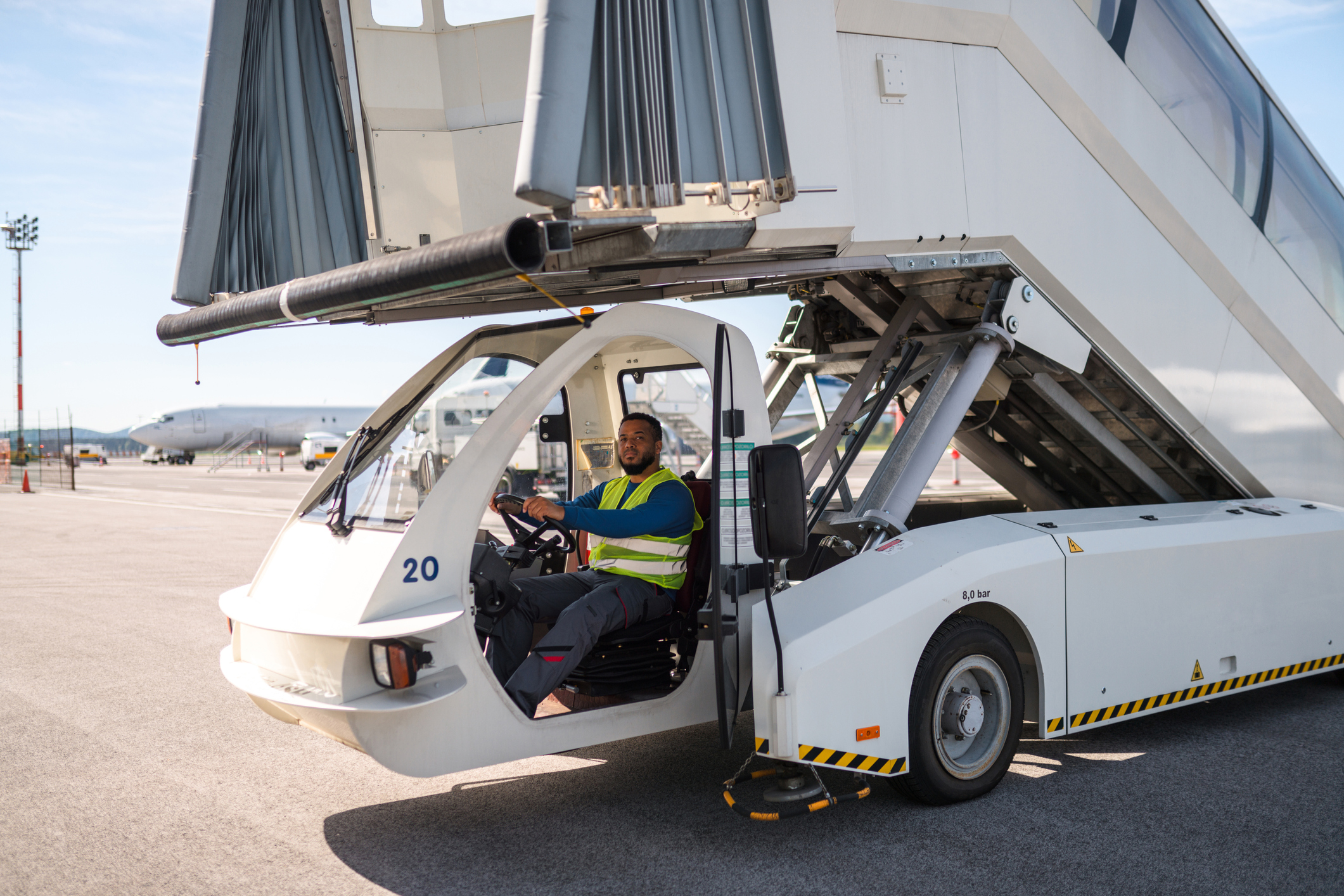The Critical Role of Training In Airport Operations

Fueling aircraft, completing pushback, deicing aircraft, handling baggage, transferring meal trolleys, and ensuring that everything is good to go before takeoff are just some of the many responsibilities of the airport ground support crew. And there’s no room for error.
Errors by the ground support crew can result in costly flight delays and can even put the lives of the ground support crew, flight crew, and passengers at risk. To that end, continuous and comprehensive training and education on the correct operation of ground support equipment (GSE) — including refueling equipment, deicing equipment, pushback and aircraft tugs, maintenance platforms, and snow-plowing vehicles — is a top priority.
In the ever-evolving and competitive aviation industry, a well-trained ground support crew is not just important — it's essential for safe, secure, and successful airport operations. Let’s look at seven areas that training can improve to help airports run safely and smoothly.
Safety
Safety is an airport’s top priority. And when it comes to GSE safety, risks are significant. With insufficient training, accidents are more likely to occur, which can lead to injuries, downtime, or even catastrophic consequences. Training can ensure that the ground support crew understands the potential hazards associated with GSE and knows how to mitigate them effectively.
Efficiency
Efficiency is essential to successful airport operations. Delays can mean increased costs for you and inconveniences for passengers. A well-trained ground support crew has the knowledge to operate GSE efficiently, helping to streamline airport operations, minimize turnaround times, and keep flights on schedule.
Maintenance
Ground support vehicles and equipment are substantial investments. Without proper training, you risk GSE not being operated correctly. This can cause unnecessary wear and tear, resulting in increased maintenance costs and reduced lifespan of vehicles and equipment. Training ground support crew on the proper operation of GSE and educating them on conducting routine maintenance checks and inspections can keep GSE in good working order, reducing overall operating costs and downtime.
Environmental Responsibility
Environmental responsibility is a top concern for all industries and airports are no exception. Improper fuel handling can result in spills, which can pose health and safety hazards, disrupt airline and airport operations, and require costly clean-ups. Proper training in fuel handling including environmental considerations, such as spill prevention and response, helps minimize risk and keeps you compliant with government regulations.
Regulatory Compliance
The aviation industry is highly regulated with strict guidelines and standards in place to ensure safety and security. Proper training on GSE helps the ground support crew adhere to these regulations. Failure to comply can lead to fines, penalties, or even the suspension of airport operations. Therefore, training is not just essential for safety and security, but also for regulatory compliance.
Risk Mitigation
Airports are susceptible to numerous risks including security threats and emergencies. The ground support crew can be critical in responding to these situations. Comprehensive training prepares the ground support crew to handle GSE-related emergencies — including fires, fuel leaks, or suspicious activity. With proper training, the ground support crew can act swiftly and effectively, minimizing potential damage and ensuring the safety of airport personnel and passengers.
Reputation Management
An airport’s reputation is essential for attracting business. Accidents or incidents involving the ground support crew can tarnish an airport's image. By investing in comprehensive training on GSE, you demonstrate your commitment to safety and professionalism, which can enhance your airport’s reputation and help retain and attract customers by providing a customer experience that meets their needs.
Comprehensive training for ground support crews is crucial for safe and efficient airport operations. Learn how to remove risks in our guide.